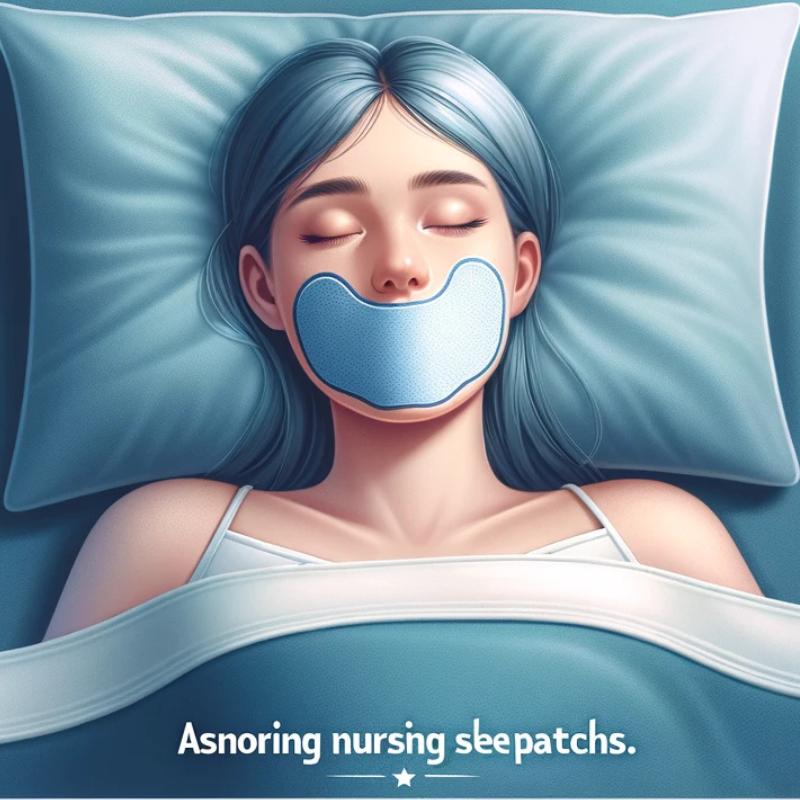![]() Do Anti-Snoring Nursing Sleep Patches Really Work? Here’s What the Science Says!
Do Anti-Snoring Nursing Sleep Patches Really Work? Here’s What the Science Says! ![]()
If you or your partner struggle with snoring, Anti-Snoring Nursing Sleep Patches might be a solution worth exploring. These patches are designed to reduce snoring by improving sleep quality and helping you stay asleep longer. Let’s take a closer look at how they work and whether they live up to the hype.
 How Do Anti-Snoring Sleep Patches Work?
How Do Anti-Snoring Sleep Patches Work?
Most anti-snoring sleep patches contain melatonin, a hormone that regulates your sleep-wake cycle. Melatonin patches help promote sleep by gradually releasing the hormone into your bloodstream through the skin, leading to a more consistent and controlled release compared to oral supplements. This steady delivery can prevent premature awakenings and help you stay in deeper sleep stages, which is crucial for those suffering from disrupted sleep patterns, like shift workers or individuals with jet lag.
Many sleep patches also include calming ingredients like L-theanine and valerian root, which help reduce anxiety and promote relaxation, contributing to a more restful night’s sleep.
 What Do the Studies Say?
What Do the Studies Say?
Research indicates that melatonin patches are effective in helping people maintain sleep, particularly during the daytime, making them a good fit for shift workers or those who experience irregular sleep schedules. These patches help increase the amount of time spent in REM sleep, a critical stage for restorative sleep functions.
While the effectiveness of sleep patches can vary, around 50-60% of users report that they experience improved sleep quality and reduced snoring after using these patches. However, not all users find them equally effective, with some reporting grogginess or no noticeable improvement in their sleep quality.
 Potential Side Effects
Potential Side Effects
Sleep patches are generally safe for short-term use, but they may cause some mild side effects in certain individuals, including:
Headaches or lightheadedness
Increased heart rate in some cases
Skin irritation at the site of application
Temporary feelings of drowsiness or grogginess upon waking
If you experience any significant side effects, it’s best to discontinue use and consult a healthcare provider.
 Are Sleep Patches the Right Solution for You?
Are Sleep Patches the Right Solution for You?
Anti-snoring nursing sleep patches may be a good option if you:
Struggle with consistent snoring that disrupts your sleep
Need a non-invasive solution that doesn’t involve medication
Prefer a slow and steady release of sleep aids throughout the night
However, if you have conditions like thyroid disorders, high blood pressure, or are pregnant, it’s important to consult with a healthcare professional before using these patches.
 Interested in Trying a Sleep Patch?
Interested in Trying a Sleep Patch?
Visit our shop to explore a variety of effective sleep patches designed to help you achieve a peaceful, snore-free night’s sleep.


